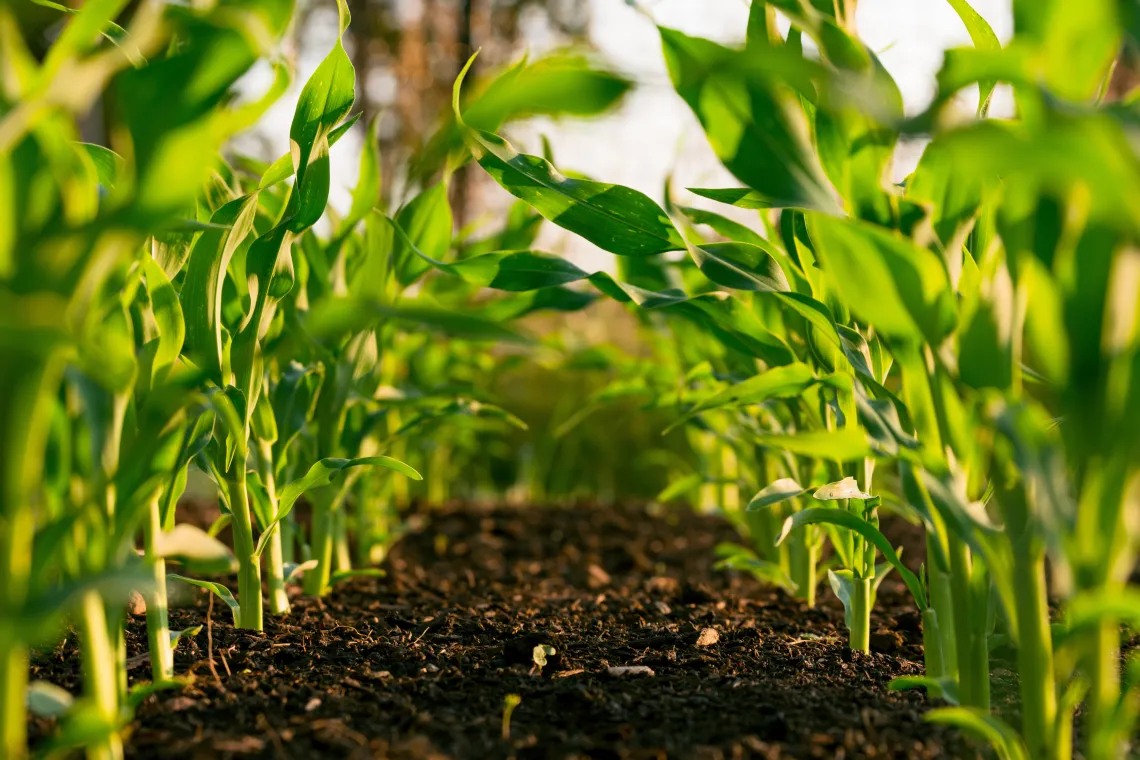WEST researchers study soil health via microbial activity

Steven Weeks on Unsplash
With soil health of primary importance to ecosystem biodiversity and agricultural production, researchers at UArizona’s WEST Center are focusing efforts on understanding how various factors influence the degradation and/or rebuilding of soils. In collaboration with the United States Department of Agriculture (USDA), researchers are using the metabolic activity of soil’s microbial community to measure adverse and/or beneficial conditions.
In the project led by Dr. Luisa Ikner and Dr. Ian Pepper, WEST graduate students Hannah Riedemann and Zhimu Lin are conducting experiments to: 1) assess the influence of moisture on soil health, 2) evaluate the influence of soil amendments – including fertilizers and microplastics – on soil health, and 3) evaluate the efficacy of restoration strategies to promote soil health in degraded soils.
In the first phase of the study, completed in 2021, the influence of soil moisture and water activity on soil health was evaluated. Soils taken from the University of Arizona Campus Agriculture Center were subjected to drying and rewetting, with concurrent soil microbial physiological activity measured utilizing AMP Indices. As hypothesized, soils subjected to moisture stress experienced a decline in microbial physiological activity. Soils were maintained in dry conditions over various durations, and then rewetted to their original moisture levels. As reported by Ms. Riedemann: For all drying periods included in the study, soils were rehabilitated by adding moisture, with microbial activity increasing in response to added moisture within 30 minutes of wetting.
In the second phase of the study (ongoing), researchers are evaluating the impact of amendments on soil health. Student Zhimu Lin is conducting experiments to better understand the influence of various fertilizers (organic and inorganic) on microbial activity. Student Hannah Riedemann is studying how microplastics may interact with / disrupt microbial activity, and thus reduce soil health relative to agricultural potential. With respect to microplastic evaluation, moisture and temperature of soils are maintained at constant levels, while microplastics are introduced. In a previous experiment at WEST, larger size microplastics (53 – 63 microns) were found to have little effect on soil microbes. This study utilizes smaller microplastics with sizes similar to microbes/bacteria themselves (1 – 4 microns). In this ongoing phase, analyses are being conducted after both short periods of incubation (hours and days) and long-term incubation (6 months). The long-term incubations may allow for degradation of microplastics into smaller fragments that can be taken up by microbes and affect metabolism.
The final phase of the study will evaluate the efficacy of various restoration strategies to promote soil health in degraded soils.
The study is being conducted over a 2.5 year time period and is funded by National Institute of Food and Agriculture (NIFA). All experiments are performed at WEST Center and UA campus laboratories, with soil samples also sent to USDA’s Dr. John Brooks for metagenomic processing.




